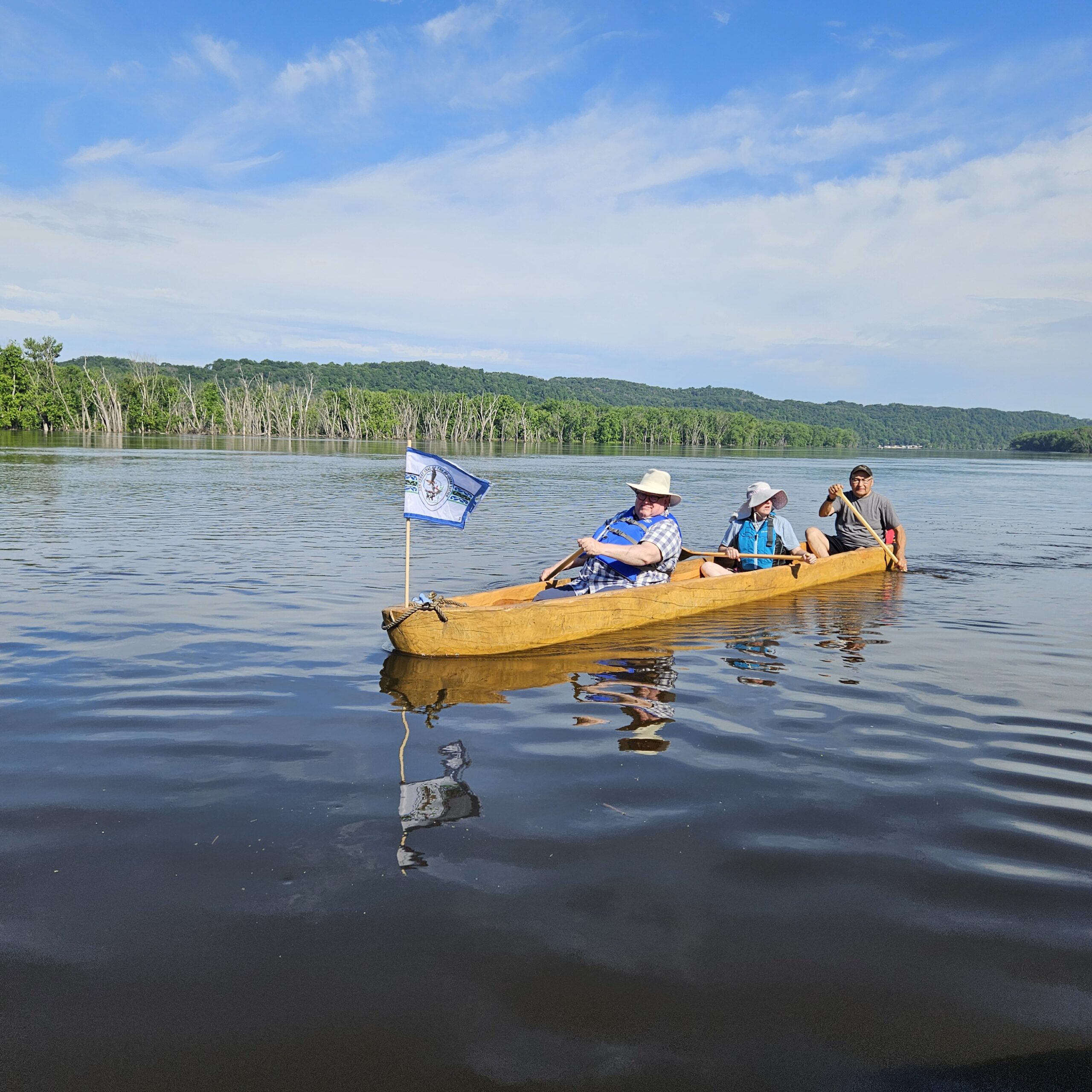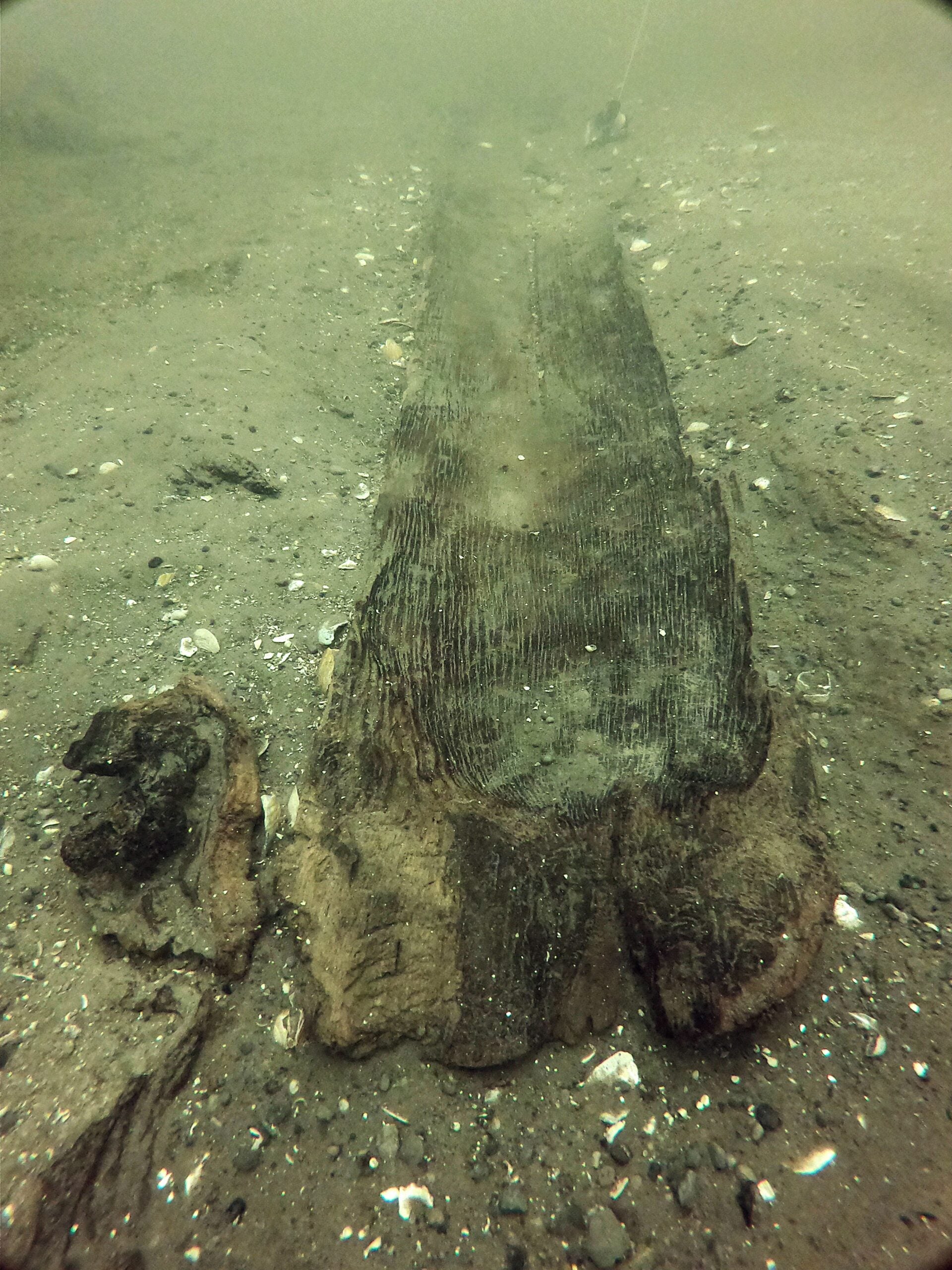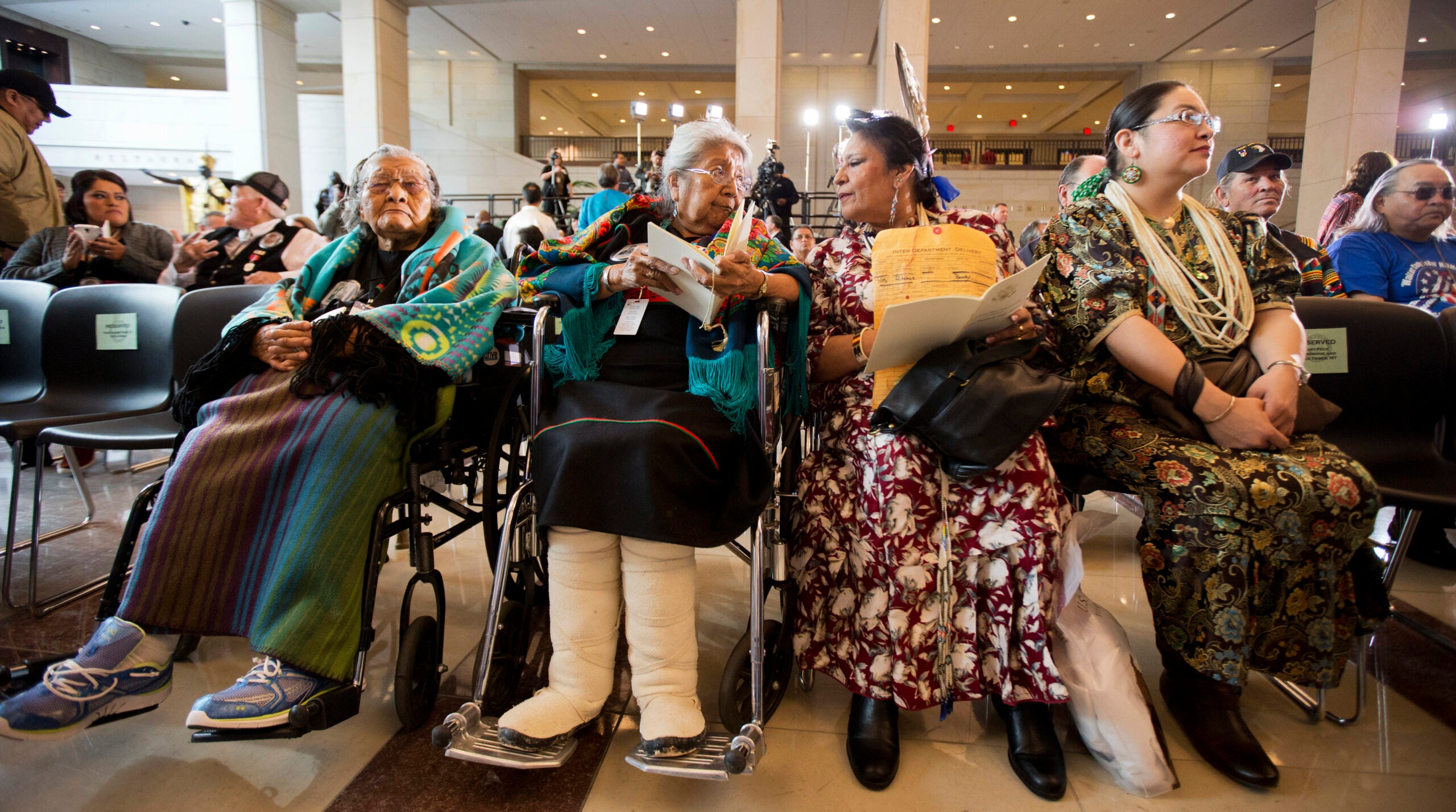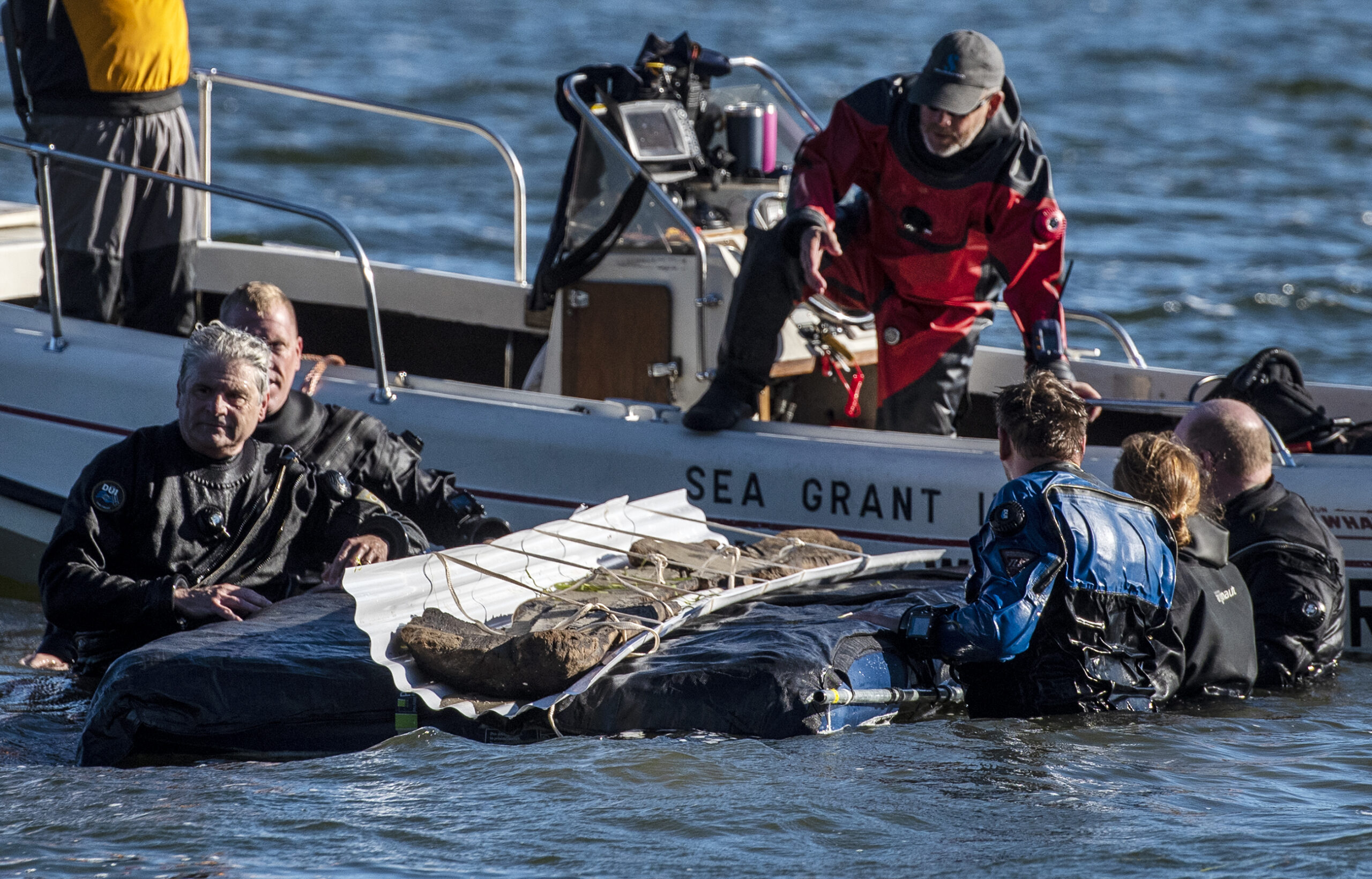Members of the Ho-Chunk Nation have completed a five-day journey in a dugout canoe.
The route took boaters through ancestral Ho-Chunk territory, along sections of the Mississippi River.
Close to 50 paddlers participated in parts of last week’s voyage, which began in Minnesota and passed through Wisconsin and Iowa before ending Friday in Galena, Illinois.
Stay informed on the latest news
Sign up for WPR’s email newsletter.
Up to six people at a time rode in the dugout canoe, which mimics a style of vessel used by Indigenous people for millennia.
Ho-Chunk Historic Preservation Officer Bill Quackenbush says tribal members used fire and other tools to carve the 22-foot boat out of a cottonwood log.
“We realized that it isn’t just a one- or two-person job,” Quackenbush said of the effort. “It’s a community event. You all sit around and share some stories and take turns.”
Some paddlers rode alongside the dugout canoe in their own boats. Local leaders and other interested residents joined Ho-Chunk members at various parts of the journey.
The most intrepid paddlers completed all five days of the voyage. They stayed overnight in hotels along the route, and drove each morning to a new boat launch.
Among the participants was Sunshine Thomas-Bear, historic preservation officer for the Winnebago Tribe of Nebraska. Its members split from what’s now known as the Ho-Chunk Nation of Wisconsin after being forcibly relocated by the federal government.
Thomas-Bear said it was therapeutic to spend time on waterways that her ancestors once traversed.
“It helps me reconnect to the area but also helps heal that part of me that’s missing, being away from my homeland and being raised in Nebraska,” she said.
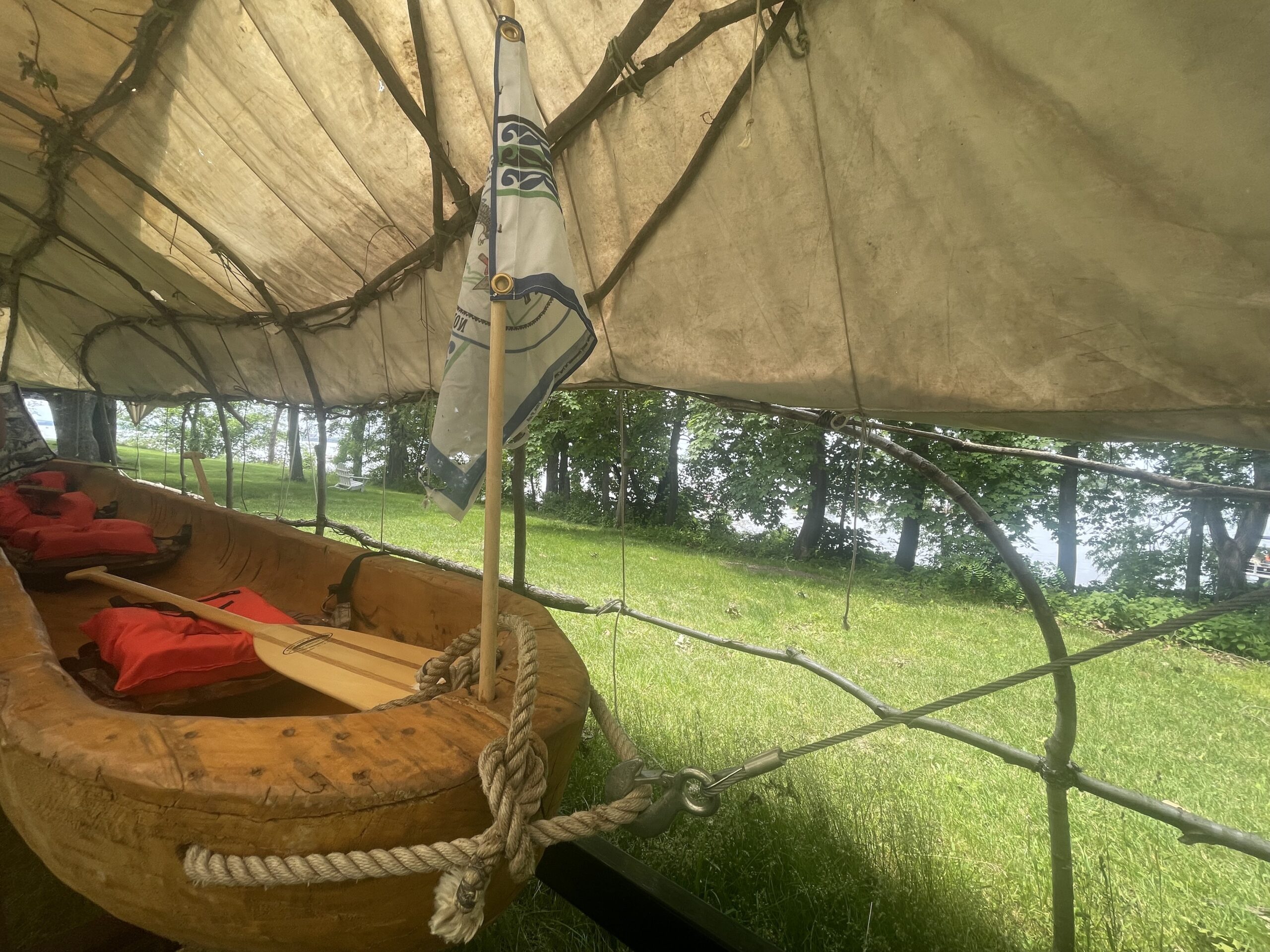
The Ho-Chunk Nation of Wisconsin began leading dugout canoe journeys in 2022. Each summer, the tribe chooses a route along a different waterway within its ancestral territory.
The first of those paddling trips started in what’s known as the Four Lakes of Madison. It took on added resonance after archeologists pulled ancient canoes from Madison’s Lake Mendota in 2021 and 2022.
And, earlier this year, the Wisconsin Historical Society announced it had worked with the Ho-Chunk Nation to identify pieces from as many as nine other ancient canoes in the same section of that lake. Canoes in that cache are believed to be between 800 and 4,500 years old.
Two of the ancient canoes will eventually be displayed at the Wisconsin History Center when it opens in Madison in 2027.
But Wisconsinites have a chance to see a more-recently constructed dugout canoe this week. The boat used in the Mississippi River voyage is on display at the Harry Whitehorse International Wood Sculpture Festival, which runs through Saturday in Monona.
Wisconsin Public Radio, © Copyright 2024, Board of Regents of the University of Wisconsin System and Wisconsin Educational Communications Board.

